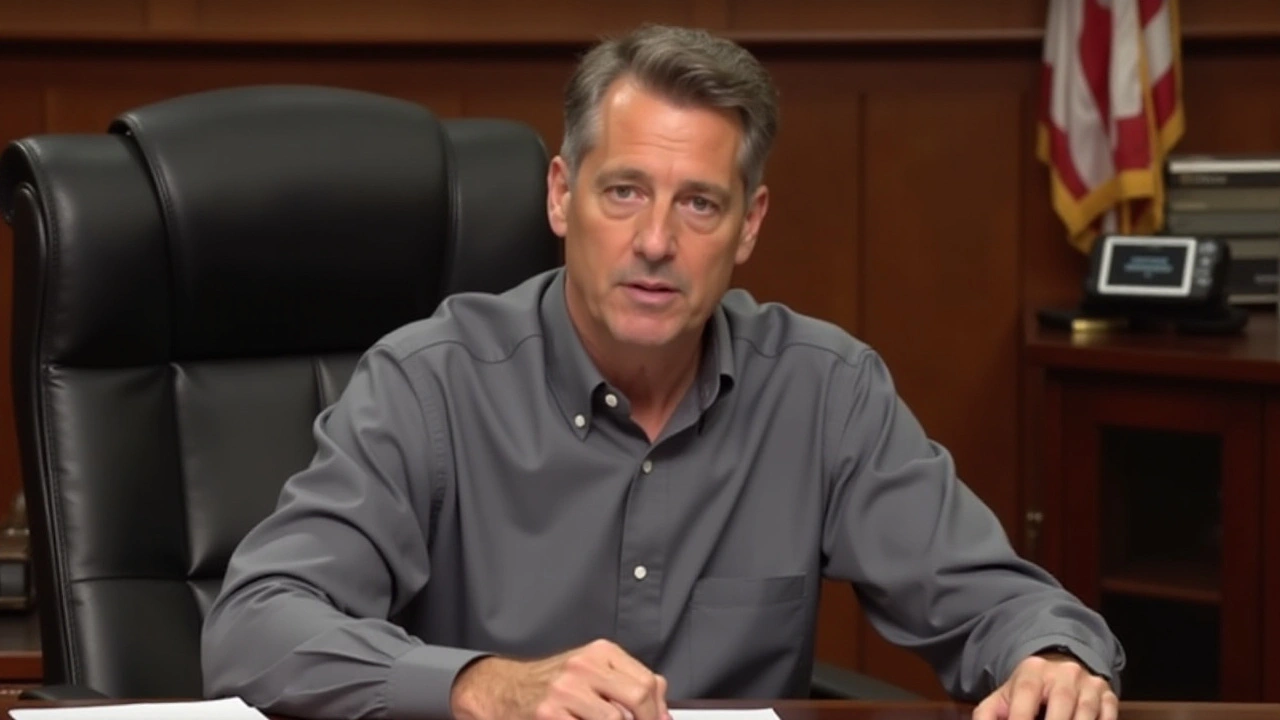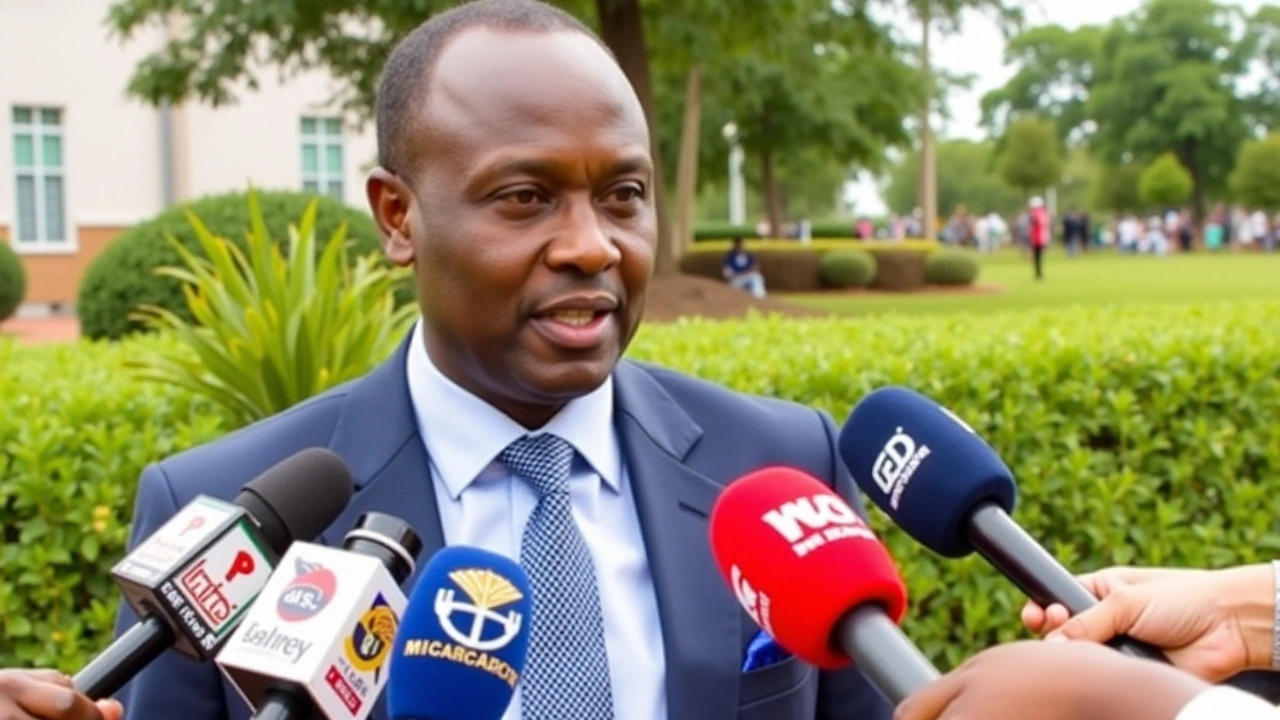Cabinet Secretary Muturi Urges President Ruto to Tackle Extrajudicial Killings in Kenya
 Feb, 1 2025
Feb, 1 2025
Kenya Faces Mounting Human Rights Concerns
In the heart of Nairobi, anguish and outrage intertwine as citizens demand answers to an escalating crisis that seems to unravel at an alarming rate. The wave of abductions and the sinister discovery of bodies in morgues has burst the bubble of complacency, spurring figures like Justin Muturi, Kenya’s Public Service Cabinet Secretary, to voice a call to action. Standing at the City Mortuary, a place bearing witness to unspeakable grief, Muturi challenges the highest officeholder in Kenya—President William Ruto—to shoulder the weight of this national calamity.
At the core of this plea are not just statistics, but human lives needlessly lost. The recent agonizing tale of young men from Mlolongo, whose promising journeys were abruptly curtailed, draws sharp rebukes from several societal quarters. These incidents punctuate an uncomfortable narrative; one of innocence plucked away by mysterious forces and of the state’s apparent paralysis. Muturi, echoing public sentiment, crystallizes this dilemma: How can a nation immerse itself in peacekeeping abroad while turmoil festers within its borders?
Extrajudicial Killings: A Deepening Dilemma
For Kenya, a nation that boasts international peacekeeping accolades, the accusations of complicity in or ignorance of internal violations rattle its very foundation. The tumultuous reality of extrajudicial killings not only blights the lives of victims and their families but also beckons introspection about Kenya’s political ethos. Muturi's criticisms are scathing yet measured. They underscore a wrenching paradox between Kenya’s external commitments, such as peace efforts in the Democratic Republic of Congo, and its internal crises.
The Mlolongo tragedy is particularly distressing. The bodies of these men, once vibrant and full of dreams, are now reduced to a grim testament to an overarching problem. Muturi reminds his audience that leadership is not merely about accolades or diplomatic endeavors; it is fundamentally about safeguarding every citizen's right to life and dignity.
Leadership Accountability and National Security
Muturi’s public statement is more than an indictment; it is an exhortation for leadership accountability. He does not wield his words lightly. Recalling his own harrowing experience when his son was caught in the web of abductions, Muturi provides a personal narrative that many can relate to but few can influence. He recounts how his status enabled a direct plea to the President, resulting in his son's release. Yet, the haunting question lingers - what of those without such direct lines of communication?
His narrative is a clarion call for systemic overhaul. It highlights a glaring trust deficit between the citizenry and the security apparatus meant to protect them. He starkly criticizes the police, whose mantle of protection appears to have slipped, resulting in a public that feels vulnerable and unprotected. His voice resonates with the anxieties of parents and citizens across the nation.
A Call for Comprehensive Inquiry and Reform
Policy-making at its core is about identifying patterns, understanding root causes, and deploying justice. Muturi advocates for a commission of inquiry, a proposal entwined with hope and urgency. This body, he argues, must be inclusive, involving an eclectic mix of parties—legal experts from the Law Society, moral guides from religious sectors, and vigilant observers from civil societies like Amnesty International and the Kenya Human Rights Commission. Each of these entities occupies a unique vantage point essential for a comprehensive understanding of these dire issues.
This proposed commission seeks to illuminate the shadowy pathways leading to abductions, to hold accountable those culpable, and most importantly, to stem this terrifying tide. Muturi’s powerful stance does not end with blanket accusations but is methodical, calling for specific actions and structured responses, underlined by a sense of urgency.

President Ruto’s Challenging Crossroads
As the head of state and the commander-in-chief, President Ruto finds himself at a daunting crossroads. Justin Muturi’s parting words in this controversy entwine with a broader question of his leadership narrative. The buck, as Muturi puts it, stops firmly at Ruto’s desk. This situation demands leadership characterized by transparency, decisiveness, and unyielding commitment to the cause of justice.
In the whirlwind of political discourse, Muturi's emphatic declaration that resignation is not yet an option adds a layer of finality to his stance—this crisis is not about him, nor should it be about the survival of any single political actor. It is about addressing a malaise that could erode the very trust necessary for a cohesive society. This governance crisis is not merely administrative but deeply moral, and it demands of its leaders the courage to confront evil with the knowledge that their actions, or lack thereof, will echo through Kenya’s history.

Elizabeth Alfonso Prieto
February 1, 2025 AT 14:49Harry Adams
February 3, 2025 AT 08:53Kieran Scott
February 3, 2025 AT 22:57Joshua Gucilatar
February 5, 2025 AT 06:47jesse pinlac
February 7, 2025 AT 06:24Jess Bryan
February 8, 2025 AT 13:49Ronda Onstad
February 9, 2025 AT 19:21Steven Rodriguez
February 11, 2025 AT 09:20Zara Lawrence
February 13, 2025 AT 06:59Ashley Hasselman
February 13, 2025 AT 07:53Kelly Ellzey
February 14, 2025 AT 07:28maggie barnes
February 16, 2025 AT 01:51Lewis Hardy
February 16, 2025 AT 02:58Prakash.s Peter
February 16, 2025 AT 15:27ria ariyani
February 18, 2025 AT 01:16